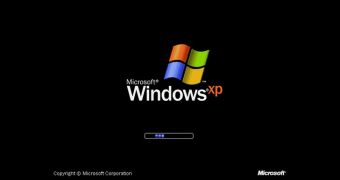Microsoft has recently signed a deal with the United Kingdom to continue providing support for Windows XP for another 12 months, thus making sure that all computers in the public sector are upgraded to a more secure operating system without exposing data to hackers.
The software giant will thus receive £5.5 million ($9.1 million / €6.6 million) in exchange for critical and important security updates for Windows XP, Office 2003 and Exchange 2003.
The Crown Commercial Service (CCS) has been responsible for the negotiations with Microsoft for the entire public sector, so computers used by the central and local government, charities, schools, and the NHS will also receive updates for another 12 months.
“This is an important deal, which will provide continuity for all eligible government and public sector organisations while they migrate on to alternative operating systems,” said Rob Wilmot, crown representative for software at CCS, according to The Telegraph.
"It is an excellent example of collaborative purchasing and demonstrates Crown Commercial Service’s new joined-up approach to commercial arrangements to achieve best value for the taxpayer.”
All organizations that want to benefit from extended Windows XP support must come up with a plan to demonstrate that they intend to move to a newer operating system sometime in the next 12 months.
Since so many organizations can actually move from Windows XP to a newer operating system in just 12 months, many could wonder how come the same thing wasn’t actually possible before April 8 when Microsoft is projected to pull the plug on Windows XP.
According to the same source, the CCS already has an answer for this question, as it has explained that moving from Windows XP to either Windows 7 or Windows 8 can be a very complex and costly process.
“Plans are already in place for organisations to migrate to other operating systems over the next 12 months. It is anticipated that the majority will have completed upgrades by April 2015,” a Cabinet Office spokesperson was quoted by The Telegraph as saying.
Windows XP is still installed on 28 percent of computers worldwide, but many are very likely to remain unprotected as extended support is fairly expensive and many companies do not afford to pay Microsoft to keep their systems protected until they migrate to a newer platform. Of course, moving to a newer OS also involves hardware upgrades, which do nothing more than confirm that this could be a very costly process.

 14 DAY TRIAL //
14 DAY TRIAL //